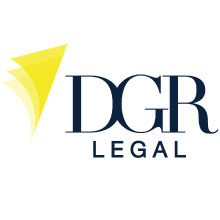By Micki Mersky
There is little doubt that technology has changed the way most law firms operate. Document management software, web-based client communication portals, artificial intelligence and litigation case management systems are just a few examples of legal technologies that are transforming the industry. However, these technological advances aren’t only affecting the day-to-day responsibilities of lawyers, but trickle down to their support staff, as well.
So how, exactly, do today’s legal support staff differ from the legal support staff of the past?
Law firms aren’t just looking for professionals who can complete simple tasks like calendar management or answering phones; they’re looking for people who can assist with a broad spectrum of work, ranging from legal research to eDiscovery. This ultimately means that the lines between legal secretaries and legal assistants are becoming increasingly blurred. What were once two different positions, have now converged into a hybrid role that is integral to the success of a law firm.
To cut costs, increase efficiency and attract millennials, law firms across the country are adapting to this new model of legal support. As a result, legal secretaries who embrace this technology, while simultaneously expressing a desire to adapt to change and acquire new responsibilities, will not only expand their future job prospects, but also open themselves up to new opportunities at their current firms. This is especially true now that many lawyers handle the clerical tasks—such as correspondence and dictation—that they once relied on their secretaries to perform.
While learning an entirely new set of skills may seem intimidating, those who make the effort to invest in their professional development can push their careers into an entirely new direction with exciting growth opportunities.
To increase your marketability and position yourself for success in the evolving world of legal support, be sure that you have command of these technical skills:
QuickBooks/Concur: While you may have used Excel for expenses in the past, employers will often specifically request that you have experience with QuickBooks or Concur instead. These programs help law firms organize their accounting in one central place where they can do everything from managing retainers to invoicing clients for legal fees.
Excel: Excel is a common tool that law firms use to not only analyze and process data, but also keep track of case assignments and status updates. To assist attorneys with these tasks, you should feel comfortable:
- Creating forms, templates and charts
- Sorting and filtering data
- Using formulas
Typing speed: While this may seem like a given, typing speed is an often-overlooked technical skill given today’s digital culture. However, typing speed and accuracy are still incredibly important in the legal field—especially when the ratio of lawyers to support staff is higher than ever. In today’s market, law firms typically require their staff to type 60+ words per minute.
Online legal research services: In the past, legal assistants/paralegals were required to go to their firm’s library and search through books to identify and understand the law as it pertained to specific cases. In the interest of saving time, law firms have taken advantage of online research services such as Westlaw and LexisNexis. As a result, an answer that used to take several hours to find, now only takes a few minutes!
eFiling/eDiscovery: Like legal research, filing and discovery are now largely electronic. Following this pattern, rather than filing or searching through hard copies of documents, not only saves a significant amount of time for all parties involved in a case, it also reduces costs drastically. To be proficient in these electronic processes, you should be able to use a digital scanner and at least one document management software program like FileSite or Elite.
From these technological advancements, it is clear that the model of legal support is changing. While change can sometimes be nerve-wracking, in this case, it is generally positive. This expanded role of legal support not only allows you to acquire new skills, it also allows for pursuit of growth opportunities and career paths that might not have been open to you otherwise. Plus, if you find that you enjoy these more advanced responsibilities, it could be an indication that attaining a further or advanced certification is in your future.
Micki Mersky is Director, Legal Services of The Execu|Search Group. The Execu|Search Group was founded in 1985 as a recruitment firm focused on serving accounting firms, boutique hedge funds and private equity funds. Over time, the firm has evolved into a full-service Recruitment, Temporary Staffing, and Workforce Management Solutions firm integrating a broad range of industries. Micki may be reached at [email protected].





















